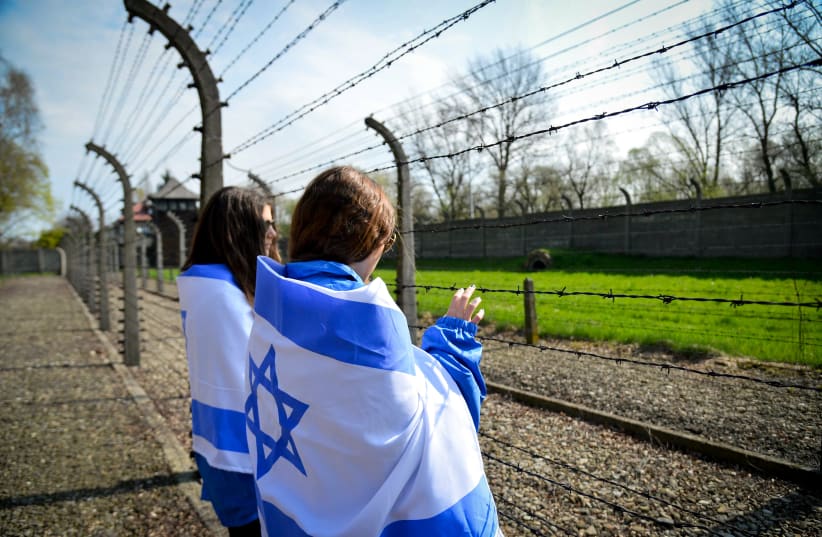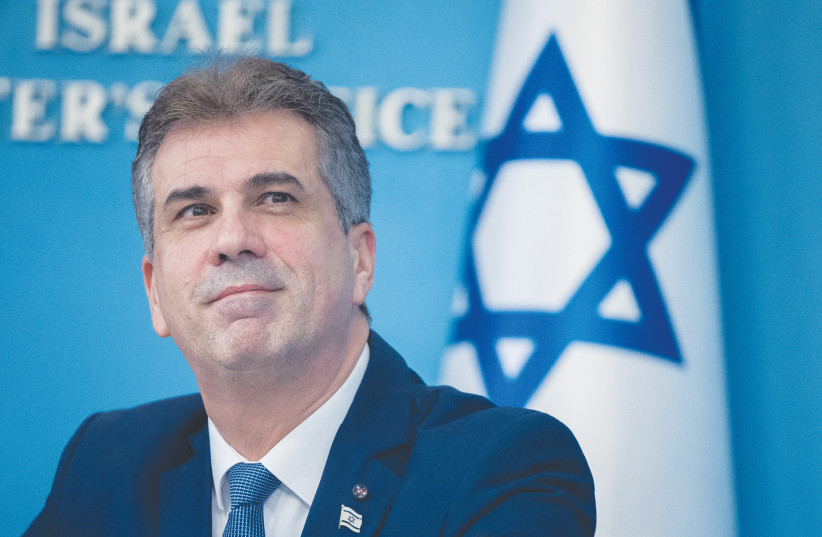Prime Minister Benjamin Netanyahu’s new government has sought to restore the country’s frayed ties with Poland, including the resumption of high school educational trips to concentration camps in the country.
It also wants Poland to return its ambassador to the country’s embassy in Tel Aviv. Warsaw had recalled its envoy there in 2021 and had downgraded the mission to Israel in November of the same year.
On Tuesday night, Foreign Minister Eli Cohen spoke with his Polish counterpart, Zbigniew Rau, the first such talks between foreign ministers of both countries in two years.
“The ministers discussed ways to warm relations between the countries, inter alia through the completion of the outline for the return of the Israeli youth delegations to Poland.”
Israeli Foreign Ministry
“The ministers discussed ways to warm relations between the countries, inter alia through the completion of the outline for the return of the Israeli youth delegations to Poland,” the Israeli Foreign Ministry said.
Poland has said it would examine the “possibility of appointing a new Polish ambassador, this after an extended period in which there has been no Polish ambassadorial presence in Israel,” Israel’s Foreign Ministry said.
“The conversation was conducted in good spirit, and the ministers expressed a desire to maintain direct and continuous contact, and even to hold a direct meeting in Poland or Israel in the near future.”
Strained ties over Holocaust education, reparations
Ties between Jerusalem and Warsaw have been strained following the Polish passage in 2018 of legislation against speaking of Polish complicity in the death of Jews during World War II.
Additionally, in 2021, Poland approved legislation that set limits on the ability of Jews to recover property seized by Nazi German occupiers and retained by post-war communist rulers.
Israel recalled its envoy but returned its ambassador to Poland a year later. Poland has yet to make a similar gesture.
At issue had also been the curriculum taught to Israeli teens during the Holocaust trips to Poland that are organized by Israel’s Education Ministry and which had become over time a signature moment in their high school experience. Separately, there was a minor issue over the use of Israeli armed guards.
The former government, led in its last phase by former prime minister Yair Lapid, had already taken steps to restore those trips.
Former education minister Yifat Shasha-Biton of the National Unity Party spoke of the resumption of the trips during her departure ceremony.
“In recent months, we [the Education Ministry] have worked together with the Shin Bet (Israel Security Agency) to find solutions to the content issue and the security of the [student] delegations. The content issue has been resolved and soon the security issue will be resolved as well,” Shasha-Biton said at that January ceremony.
Separately on Tuesday, Foreign Ministry Eli Cohen pushed Romania and Bulgaria to support a European Union designation of the Islamic Revolutionary Guard Corps as a terror organization.
He spoke with counterparts Bogdan Aurescu of Romania and Nikolay Milkov of Bulgaria on the phone on Thursday.
“In both talks, the ministers agreed on strengthening their common front against Iran,” Israel’s Foreign Ministry said.
At Cohen’s request, the “two foreign ministers agreed to positively consider designating the IRGC as a terrorist organization in the European Union,” it added.
The conversation came as Netanyahu’s new government is engaged in a global campaign against the IRGC.
To date, only the United States, Bahrain and Saudi Arabia have declared the IRGC as a terror group, despite the group’s involvement in the suppression of street protests in Iran and its support of terror groups such as Hezbollah and Hamas.
Prime Minister Benjamin Netanyahu spoke with French President Emmanuel Macron about the IRGC when he visited Paris last week, and both he and Cohen have raised it in general in their conversations with top global diplomats.
The European Parliament has called on the European Union to label the IRGC as a terror group and to sanction it.
The European Union Council of Foreign Ministers imposed new sanctions on the IRGC last month but did not designate it as a terror group.
EU’s foreign policy chief Josep Borrell explained that there were legal issues involved and that such a declaration must first come from a European court.
Reuters contributed to this report.

